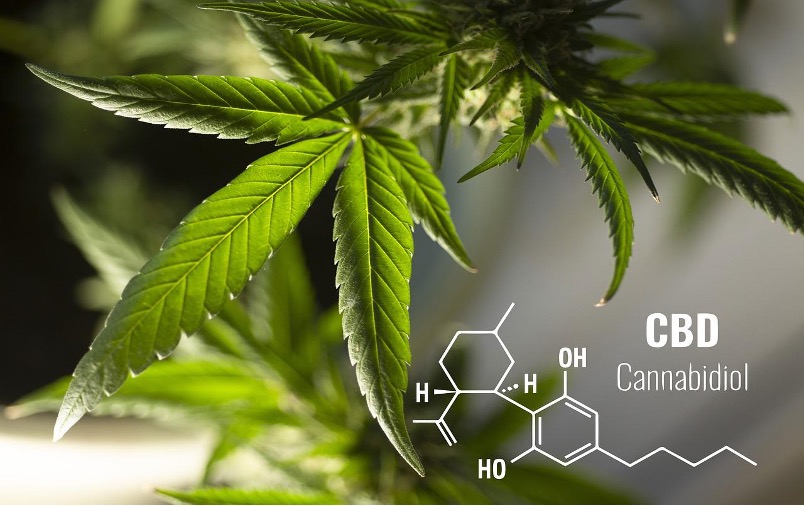
The CBD industry has undergone a remarkable transformation in recent years, thanks to the advent of new technologies. Technology has played a significant role in shaping the CBD industry as we know it today, from advanced extraction techniques to innovative product formulations.
With the widespread legalization of cannabis and increased consumer awareness of the benefits of CBD, the industry has seen an influx of new players and an explosion in the variety of products available. In this post, we’ll explore how technology changes the CBD industry and the future of this rapidly evolving market.
1. Extraction Technologies
One of the most significant advances in the CBD industry has been the development of new extraction techniques. Innovations such as supercritical carbon dioxide (CO2) extraction have made it possible to extract CBD from cannabis plants with greater efficiency and lower environmental impact. This technology has enabled producers to create more concentrated forms of CBD, making it easier for manufacturers to develop products with higher potency and fewer contaminants.
You also now have access to novel extraction methods, such as distillate and isolate processes used to create pure forms of CBD or isolates. These products are sought after by those seeking the highest purity and potency in their CBD products.
2. Testing and Quality Assurance
Testing and quality assurance are essential for the CBD industry, especially as more consumers become aware of the potential for contamination in products derived from cannabis plants. Thanks to technology, producers can now conduct comprehensive testing on their raw materials and finished products to ensure compliance with safety standards. This helps them create CBD products that are safe, effective, and free of contaminants.
In the future, we may see the development of new technologies that could enable producers to conduct real-time testing on their products and quickly identify contaminants or quality issues. This would allow them to address any problems before they reach consumers, ensuring a safer and more reliable CBD experience.
3. Mass Production and Automation
Technology has also enabled producers to increase the scale of their operations, allowing them to create more products in less time. Automated production systems have allowed for large-scale manufacturing of CBD products, making them more affordable and accessible than ever before.
By leveraging advances in automation, producers can now produce consistent batches of CBD products with incredible speed and efficiency. You can now purchase delta 9 thc and various other items in large quantities at discounted prices, which helps make CBD more accessible to a wider range of consumers. The greater availability of CBD products has also made it easier for producers to market their products and reach a broader audience.
4. Innovative Formulations
The beauty of CBD products has always been in their versatility. Thanks to technology, producers can now create a wide range of innovative formulations, such as edibles, topicals, and sublingual drops, that make it easier for consumers to incorporate CBD into their daily lives. With technology improving, we may see even more advancements in product formulations, such as transdermal patches and water-soluble CBD products. These products are designed to provide targeted relief faster and more efficiently than traditional methods.
5. Distribution Channels
In any industry, distribution is vital. Technology has made it easier for CBD producers to reach a broader range of consumers with their products, allowing them to leverage existing e-commerce platforms and create their websites and apps.
This has opened up new opportunities for producers to promote their products directly to consumers and offers improved customer service via online chatbots and automated customer support. Technology has enabled producers to access new and innovative distribution channels, such as subscription-based services, making reaching a larger customer base easier. This helps increase their chances of success in the competitive CBD market.
6. Packaging and Branding
In addition to distribution, technology has also allowed producers to improve how they package and brand their products. With advanced printing and labeling technology, producers can now create eye-catching packaging that stands out on store shelves. This helps them build a compelling brand identity and promote their products more effectively. CBD manufacturers also have access to new materials, such as biodegradable packaging, making creating sustainable solutions easier. This helps them reduce their environmental impact and build trust with their customers.
7. Customer Experience
The success of any business depends on its ability to create a positive customer experience. Technology has enabled producers to create powerful and intuitive platforms that provide customers an enhanced buying experience. This includes streamlining the checkout process, offering personalized recommendations, and providing real-time updates on orders.
These features help build customer loyalty by creating a more enjoyable and memorable shopping experience. Additionally, producers can use technology to create feedback loops that help them better understand the needs of their customers and make informed decisions about product development.
Technology has changed how we think about CBD products, revolutionizing production methods, marketing strategies, and customer experience. With new advancements in technology being made every day, it’s clear that CBD manufacturers and producers must keep up with the latest trends if they want to succeed in this rapidly changing industry. With the right technology, producers can create robust solutions that help them stand out from the competition and build customer trust. By embracing new technologies, producers can ensure that their products are on the cutting edge of innovation.
































